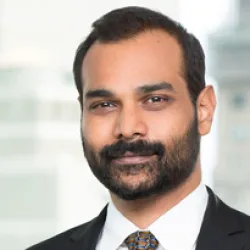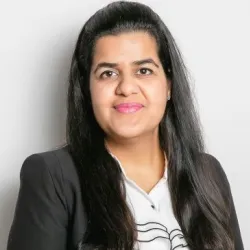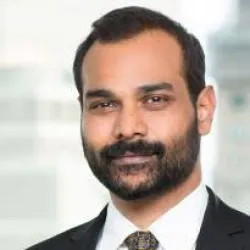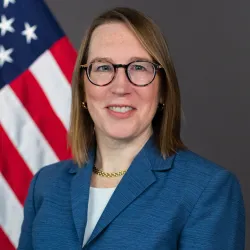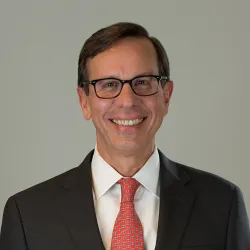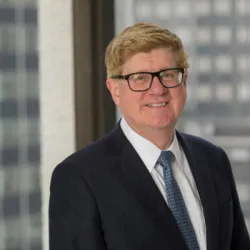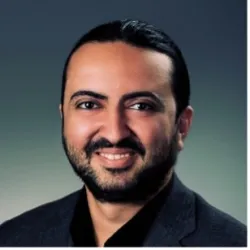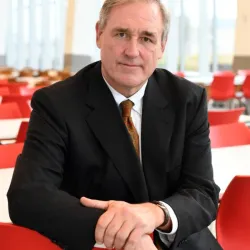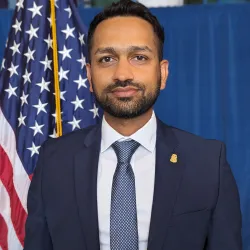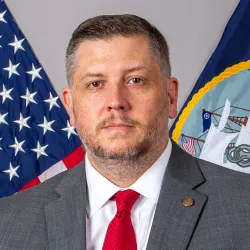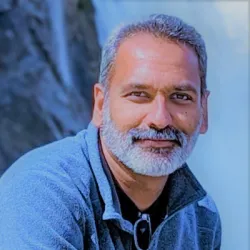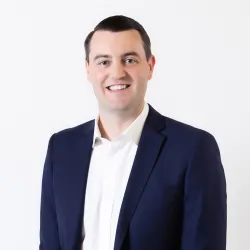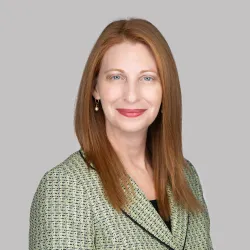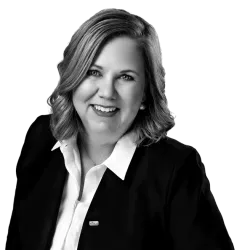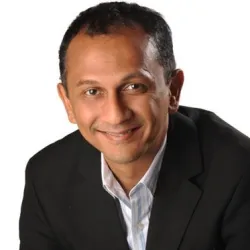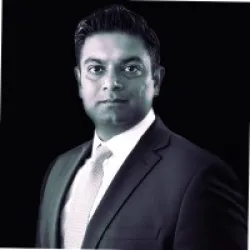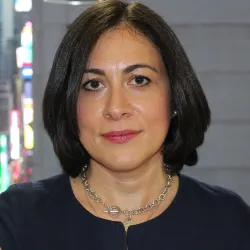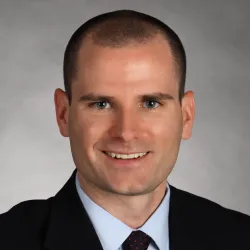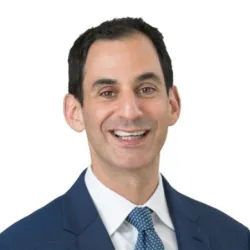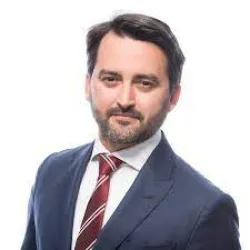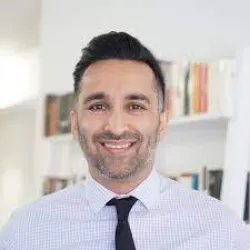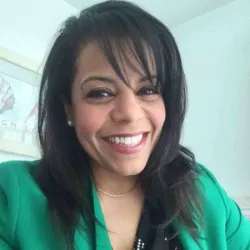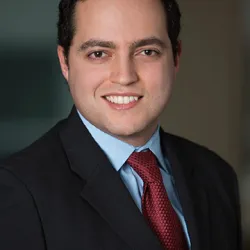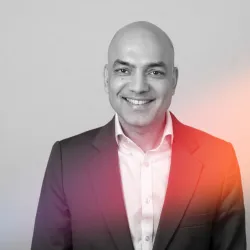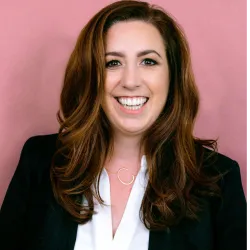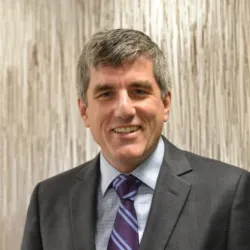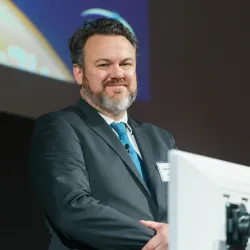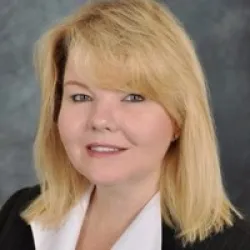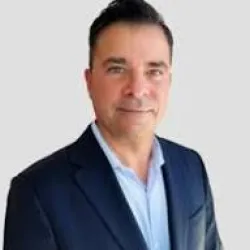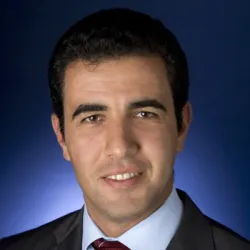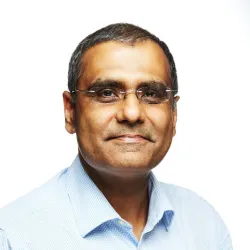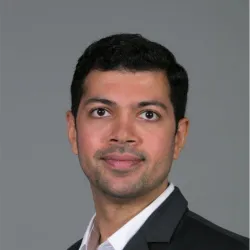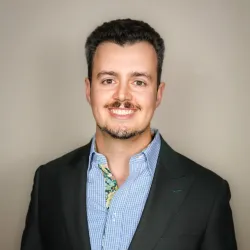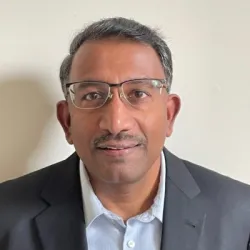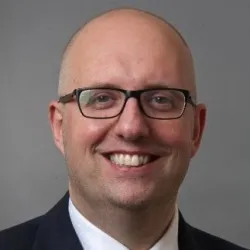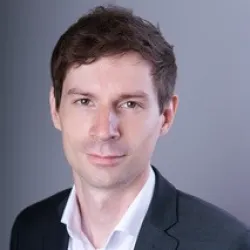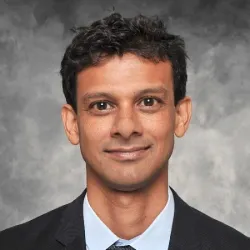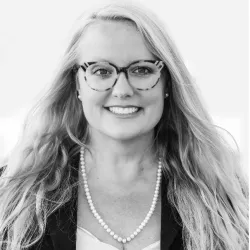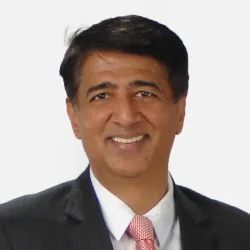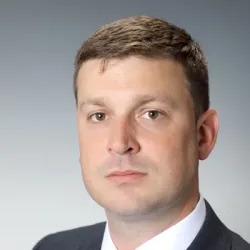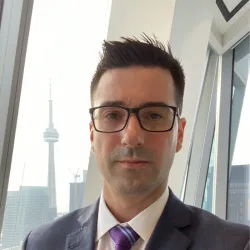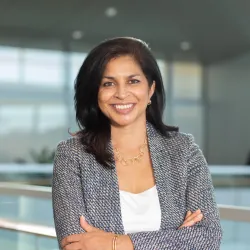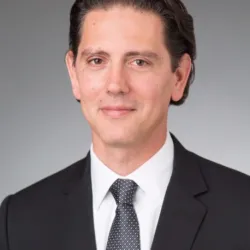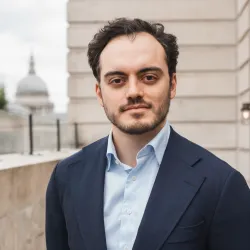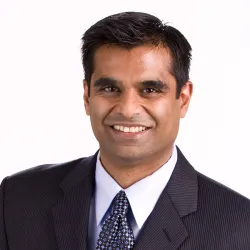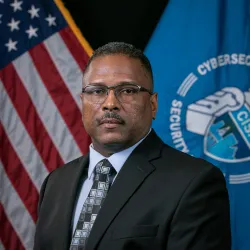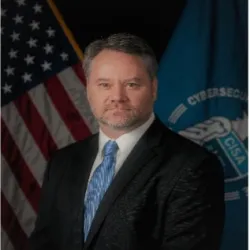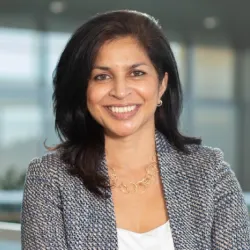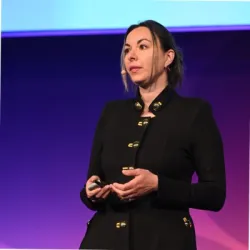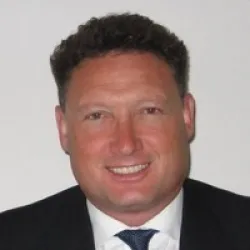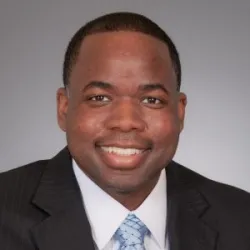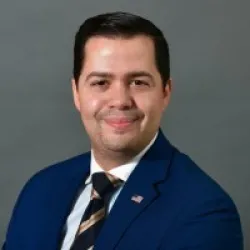Agenda Day 1
Agenda

Risk Live North America agenda
The Risk Live North America agenda showcases world-class speakers and industry leaders sharing critical insights on the trends affecting the market this year
Morning keynotes
08:00 – 09:00
Opening registration, refreshments and regional banks working breakfast
08:00 - 09:00
________________________________________________________________________________
Concurrent - Regional bank welcome breakfast
Invitation only – starts 8:00am
Room (Brickyard A)
An opportunity for regional bank delegates to meet and greet, and hold a discussion to address ways to overcome common challenges faced by regional banks.
Risk executives from regional banks please join us for this special morning session, RSVP elle.turner@infopro-digital.com
Kris Devasabai is the editor-in-chief for Risk.net. Previously, he was bureau head, US of Risk magazine and now he manages the editorial teams in APAC, EU and US. Prior to joining Risk, he covered hedge funds, asset management, cross-border investing and law for several publications. Kris holds a bachelor’s degree in law and government from the University of Manchester, and he completed his legal training at the Inns of Court School of Law in London. He was called to the bar of England and Wales in 2003.
Sakshi Sharma has over 12 years of multi-platform professional journalism experience as a financial news editor and reporter at global news organizations in New York, London and Mumbai at Euromoney, CNBC and Bloomberg. Over the past ten years she specialized in infrastructure and energy finance news across the Americas with a deep understanding of financial markets, project finance, asset management, institutional investors, capital markets and various debt & equity instruments. In her current role, as Americas commercial content lead and an editor with Infopro Digital’s Ignite team, she provides financial industry clients with compelling thought leadership content across its brands - Risk.net and WatersTechnology.
08:55 – 09:00
Welcome remarks
08:55 - 09:00
Room (Grand D)
Kris Devasabai is the New York-based editor-in-chief of Risk.net. Previously, he was bureau chief and US editor of Risk magazine. He manages the editorial team. Prior to joining Risk, Kris covered hedge funds, asset management, cross-border investing and law for several publications.
Kris holds a bachelor’s degree in law and government from the University of Manchester, and he completed his legal training at the Inns of Court School of Law in London. He was called to the bar of England and Wales in 2003.
09:00 – 09:30
Regulatory keynote
09:00 - 09:30
Room (Grand D)
As we navigate the ever-evolving landscape of finance and technology, the US Securities and Exchange Commission remains committed to fostering a fair, orderly and efficient market that protects investors while facilitating capital formation and economic growth. This keynote will explore the very latest issues and regulatory priorities for 2025.
Hester M. Peirce was appointed by President Donald J. Trump to the U.S. Securities and Exchange Commission and was sworn in on 11 January, 2018.
Prior to joining the SEC, Commissioner Peirce conducted research on the regulation of financial markets at the Mercatus Center at George Mason University. She was a senior counsel on the U.S. Senate Committee on Banking, Housing, and Urban Affairs, where she advised Ranking Member Richard Shelby and other members of the Committee on securities issues.
Commissioner Peirce served as counsel to SEC Commissioner Paul S. Atkins. She also worked as a staff attorney in the SEC’s Division of Investment Management. Commissioner Peirce was an associate at Wilmer, Cutler & Pickering (now WilmerHale) and clerked for Judge Roger Andewelt on the Court of Federal Claims.
Commissioner Peirce earned her bachelor’s degree in economics from Case Western Reserve University and her JD from Yale Law School.
Kris Devasabai is the New York-based editor-in-chief of Risk.net. Previously, he was bureau chief and US editor of Risk magazine. He manages the editorial team. Prior to joining Risk, Kris covered hedge funds, asset management, cross-border investing and law for several publications.
Kris holds a bachelor’s degree in law and government from the University of Manchester, and he completed his legal training at the Inns of Court School of Law in London. He was called to the bar of England and Wales in 2003.
09:30 – 10:15
Navigating uncertainty: CROs at the helm
09:30 - 10:15
Room (Grand D)
This panel brings together chief risk officers (CROs) to discuss the evolving risk landscape in finance. These seasoned executives will share insights on emerging threats, regulatory challenges and innovative risk management strategies shaping the industry’s future. Join us for a candid conversation on how top risk professionals are steering their organisations through turbulent waters and preparing for tomorrow’s challenges.
John Schiavetta is a Senior Vice President and Chief Risk Officer for AB, overseeing aspects of risk management to ensure that risks being taken are well understood and appropriately managed. He joined AB in 2008 as director of risk management, with responsibilities for fixed-income risk, liquidity risk, counterparty risk and valuation. Previously, Schiavetta was at Fitch Ratings for 15 years, most recently as group managing director, responsible for managing the agency’s global structured credit ratings group. Prior to that, he was product manager at pension-consulting firm CDA Investment Technologies. Schiavetta began his career at the Dreyfus Corporation. He holds a BA in economics from Bates College and is a CFA charterholder.
Ron is (FMR) Head of credit, head of enterprise risk supervision at the Federal Reserve Bank of New York. He is currently US Board Risk Committee Vice Chair at Natixis bank. He provides board oversight of Natixis' US businesses including its branch, its Corporate and Investment Bank in New York, and its asset management group, Natixis Advisers in Boston.
Adam Ennamli is the current chief risk officer at General Bank of Canada, overseeing the evolution and management of all enterprise-wide risks. He leverages over 15 years of risk management, compliance and operations leadership experience at major financial and technology institutions globally, including Thomson Reuters, Canada Mortgage and Housing Corporation, Morgan Stanley and National Bank of Canada.
In his prior roles, Adam spearheaded the development of risk management, governance and compliance programmes driving strategic decision-making and prudent growth. He holds an MBA from HEC Montreal as well as multiple ESG certifications, complementing his expertise across ERM, cyber security, operational resilience and technology. Adam is recognised for enabling companies to build durable competitive advantages through world-class capabilities.
Nick Silitch was recently senior vice president, chief risk officer of Prudential Financial, Inc. In this role, Silitch oversaw Prudential’s risk management infrastructure and risk profile across all business lines and risk types. Under his direction, his team developed models, metrics, frameworks and governance to manage risk, and works with internal corporate partners and business groups to identify, assess and prioritize risk across the company. He was chairman of the organization’s Enterprise Risk Committee that evaluates current and emerging risks relevant to the company, and is a member of Prudential’s Senior Management Council.
Silitch also worked with external stakeholder groups to forward industry interests. He was head of the International Affairs Committee for the North American Chief Risk Officers’ Council, and a member of the Advisory Council for the International Association of Credit Portfolio Managers.
Silitch joined Prudential in 2010 as chief credit officer and head of investment risk management, overseeing Prudential’s general account and other proprietary investment risks globally, as well as maintaining and approving Delegations of Authority and Investment Policy Statements.
Prior to joining Prudential, Silitch held the position of chief risk officer of the Alternative Investment Services, Broker Dealer Services and Pershing businesses within Bank of New York Mellon. He also served on the Pershing Executive Committee.
Silitch joined Bank of New York Mellon in 1983 as a credit trainee. Throughout his career at the bank, he held senior positions in client management, investor relations, risk management, loan restructuring, credit portfolio management and Basel compliance.
He received a bachelor’s degree in economics from Colby College.
Dharrini Gadiyaram is the Global Head of Enterprise Risk Products for Bloomberg, responsible for developing the business strategy across risk solutions including market risk, credit & counterparty risk, collateral management and climate risk that are used by the sell-side and buy-side. Ms Gadiyaram joined Bloomberg in 2014 and has held various roles including product management for front office risk solutions and FX/commodity derivatives across the terminal, enterprise data and risk solutions. Prior to joining Bloomberg, Ms Gadiyaram led oil refined products and exotic derivatives trading for Credit Suisse, and has held roles in commodities quantitative research and risk technology at Credit Suisse and Lehman Brothers.
Duncan Wood is the London-based editor-in-chief of Risk.net. He was promoted to the role at the start of 2015, to lead the editorial reorganisation of the website and its print titles. Wood had been editor of Risk magazine since July 2011. He rejoined Risk as European editor in October 2009, having originally worked for Risk and Asia Risk in London and Hong Kong as a writer and researcher between 1998 and 2000.
In the intervening years, Wood was news editor for the Oliver Wyman-founded online start-up ERisk.com. He also worked freelance for six years while living in Germany, with his work featuring in Euromoney, Financial News, IFR, and The Wall Street Journal, as well as Risk magazine and its sister titles. Wood has written about derivatives and risk throughout his 17-year career in journalism. He is a Neal Awards finalist, and has won Incisive Media's journalist and editor of the year awards.
10:15 – 11:00
Breached: what next?
10:15 - 11:00
Room (Grand D)
Human error, hacks and systemic failure are challenges that have been plaguing risk professionals for years, if not decades. What happens after? A multitude of recent occurrences have shown that even the best-made plans and procedures can often fall short. What lessons can be learned from recent failures, and what should professionals be mindful of?
- Emerging threats and responses: understanding the dynamic cyber threat landscape facing the financial sector.
- Collaborative security efforts: enhancing public-private partnerships to fortify financial infrastructures.
- Advanced security technologies: implementing new tools and techniques in cyber security for financial institutions.
Prior to joining Risk, he reported on the futures and foreign exchange industries for Dow Jones' Financial News and the Euromoney group of publications. Osborn holds a bachelor's degree in English literature from the University of Warwick.
My title is assistant special agent in charge, FBI Chicago.
Jay Patel is an Assistant Special Agent in Charge (ASAC) with the Federal Bureau of Investigation, in the Chicago Field Office. ASAC Patel has over 20 years of cyber security experience in the private sector and the FBI. ASAC Patel has investigated complex National Security cyber intrusion investigations involving US Government, Nuclear Power Companies, Defense Contractors, and financial institutions. ASAC Patel has significant cross-programmatic experience investigating and leading hybrid Counterintelligence and Cyber investigations. ASAC Patel also has experience leading high profile international counterterrorism investigations involving homegrown violent extremists.
Prior to becoming a Special Agent, ASAC Patel provided a wide range of management consulting services to various business sectors in New York. Some of the services provided were incident response, penetration testing, internal and external audits, and implementation of enterprise-wide IT security and governance framework to identify and mitigate risks.
ASAC Patel holds a Master’s of Science degree in Information Systems, with a focus on Cyber Security, from Stevens Institute of Technology and a Bachelor’s of Science degree in Computer Engineering from New Jersey Institute of Technology.
Donald E. Yeske serves as the director of the National Security Cyber Division (NSCD) in the DHS Office of the Chief Information Security Officer. As the
director of NSCD, Mr. Yeske is responsible for governance of national security systems (NSS) across the DHS enterprise, management of communications
security (COMSEC) for all DHS networks and infrastructure, and leadership of zero trust implementation across DHS.
Prior to joining DHS, Mr. Yeske served in the Office of the Department of the Navy (DON) Chief Information Officer (CIO), most recently as the DON chief
technology officer (CTO). There, Mr. Yeske and the CTO team produced a series of design concepts operationalising the DON’s information superiority vision;
designated the first enterprise information technology (IT) service for DON-wide use (the Naval Integrated Modeling Environment—providing collaborative digital
engineering capabilities for the Navy and Marine Corps); and provided leadership for ongoing efforts to operationalise zero trust principles throughout the DON and Department of Defense (DoD). This included the stand-up of the DoD’s Zero Trust Portfolio Management Office and ongoing
implementation of the Navy’s Flank Speed environment—a cloud-native platform built to embody zero trust principles that now serves over 500,000 sailors and civilians worldwide.
Before joining the DON CIO, Mr. Yeske served in a number of critical leadership positions for the Navy and Marine Corps. At Headquarters Marine Corps, Deputy Commandant for Information (2019-2022), Mr. Yeske led the team that developed a plan to synchronise technical and management actions across more than 57 Marine Corps programmes, projects, and initiatives and more than $1.6B in spending to transform the Marine Corps Enterprise Network in support of Force Design 2030 and other strategic initiatives.
During his civilian career, Mr. Yeske has deployed three times, for a total of three years, into active combat zones. He has been recognised with the Chairman of the Joint Chiefs of Staff Joint Civilian Service Commendation Award (for his service in Afghanistan) and the Marine Corps Commendation for Meritorious Civilian Service (for his work on the Marine Corps Net Mod Plan). Mr. Yeske began his career in the United States Air Force as a strategic communications technician.
Mr. Yeske currently holds an Associate of Applied Science from the Community College of the Air Force and a Bachelor of Science in Information Technology Software Engineering from the University of Phoenix, and he is currently completing a Master of Science in Government Information Leadership, with concentration on National Security and Cyberspace Studies, at National Defense University College of Information and Cyberspace.
Satish Laxminarayanan
Managing director, cyber, technology, operational resilience and payments risk
BNP Paribas
11:00 – 11:30
Coffee and networking break
11:00 - 11:30
________________________________________________________________________________
Concurrent - Ask the expert - Credit Benchmark: 2025 US outlook: predicting default risk in unpredictable times
Exhibition area
Geopolitical volatility and the coming after-effects of US elections on fiscal policies, tax rates, and interest rates make for challenging scenario-playing. Credit consensus data, sourced from leading global banks, is a key component for making and maintaining credible sector-specific default projections. With limited resources for monitoring and surveillance, can banks and investors leverage consensus ratings data for mitigating risk in their portfolios, forecasting default rates, and better managing and allocating capital?
Don’t miss the opportunity to put your questions to our expert and uncover:
- What changes are expected in US default risk over the next year, and how could the election impact sector risks?
- Will the most challenged US commercial real estate sectors soon turn a corner?
- As private credit drives the evolution of banks’ originate-to-distribute models, what credit risk management practices could change?
- Where is the banking industry headed in the next 5-10 years and what do credit risk managers need to be thinking about now?
Matt leads business development for the Americas, focused on growing the contributor base and leading the Sales Directors in expanding Credit Benchmark’s subscriber base. He has covered financial institutions for over 25 years as a lead analyst, banker and management consultant.
Prior to Credit Benchmark, Matt developed and delivered credit and corporate finance consulting services to US banks as a Senior Manager at EY, and held senior positions providing credit ratings and credit advisory spanning 14 years across Moody’s, Fitch and Morgan Stanley. Matt holds a BS in Physics from the University of Notre Dame and an MBA in Finance from the NYU Stern School of Business. He is a CFA Charterholder. He began his career as an officer in the US Navy Nuclear Submarine program.
Thematic streams
11:30 – 12:00
Industry outlook: from liquidity risk to ongoing market volatility, is complexity here to stay?
11:30 - 12:00
Room (Grand D)
- Reflecting on a roller-coaster year for the banking sector: what is the current status of the industry?
- How can banks prepare for liquidity stress?
- What do industry trends and data suggest for 2025?
- What impact might ongoing regulatory and supervisory changes have on the banking system?
Christos Ekonomidis is a senior director at BNY focused on enterprise transformation. He leads firm initiatives in market structure, risk management, and regulatory mandates. Notably, he has led recent programs such as migrating North American securities markets to T+1 (one day securities settlement) and transitioning from LIBOR to other global risk-free rates. He coordinates all global business, financial, legal, operational, system and project workstreams with a concentration on client communication, bank readiness, educating support teams, and addressing regulatory inquiries.
With over 15 years dedicated to the financial services industry, Christos specialises in driving transformation efforts across fixed income, equities, and derivatives. Before his tenure at BNY, he worked at consultancies including Sapient Global Markets and EY where he drove innovative strategies to manage risks and improve business performance.
Scott is Co-Head of Quantitative Services at Acadia where he manages complex projects and teams within quantitative finance. Scott is a risk and finance professional specializing in capital planning, stress testing, derivatives pricing, and model development at large US banks. He advises financial institutions on risk management and regulatory compliance matters, helping clients accelerate development timelines and achieve high-value institutional objectives. Scott has extensive experience meeting Dodd Frank deliverables, Uncleared Margin Rules and managing regulatory relationships with the Federal Reserve, OCC, FDIC, and others through prior roles at Citigroup and Santander US. He holds a B.A. in Mathematics and Economics with Honors from Williams College, as well as active Chartered Financial Analyst (CFA) and Certificate in Quantitative Finance (CQF) qualifications.
Emily Nachlas is the Chief Risk Officer of Western Alliance Bancorporation.
In this role, Ms. Nachlas brings nearly 25 years of experience in financial services risk management to oversee Western Alliance Bancorporation’s second line of defense risk management teams and processes. Since joining the bank in 2019, she has evolved the organization’s risk management strategy, organizational risk framework, and infrastructure commensurate with its size and complexity as it crossed the regulatory threshold beyond $50 billion in assets. She provides overall leadership, vision, and direction for enterprise risk, credit risk, financial risk, strategic risk, compliance, BSA/AML, operational risk, credit review, and model risk management.
Before joining Western Alliance Bank, Ms. Nachlas specialized in developing risk management programs as Executive Vice President and Director of Enterprise Risk Management at IBERIABANK in New Orleans and previous risk management positions at HSBC, Amegy Bank and Hibernia National Bank. She holds a Bachelor of Science degree in Management from the A.B. Freeman School of Business at Tulane University and a Master of Business Administration degree from the University of New Orleans.
Within the banking industry’s risk management discipline, Ms. Nachlas serves on several boards and councils, including the National Mid-Tier CRO Council of the Risk Management Association, as well as the local Phoenix RMA chapter. She is a frequent speaker and presenter at industry conferences. In 2022, she was named among Arizona’s Most Influential Women in Business. As a committed ally, she is the Executive Sponsor of PRIDE@Work, the BRG for Western Alliance Bank’s LGBTQIA people and allies.
Ms. Nachlas lives in Phoenix with her husband and two children. As a volunteer with Arizona Small Dog Rescue, she has fostered more than 50 small dogs since 2016, ensuring they have safe forever homes.
Aimee Hamilton, Chief Risk Officer, is responsible for FirstBank’s enterprise risk management activities and oversees consumer compliance, anti-money laundering regulations, physical security, information security, loan review and risk management.
Aimee has more than 30 years of experience in financial risk management with organizations ranging from $800 million to more than $50 billion in asset size. She most recently served as Chief Risk Officer at Cadence Bank, based in Houston, Texas.
Aimee is a graduate of Louisiana State University with a Bachelor of Science in Accounting. Additionally, she is a Certified Public Accountant (licensed in Louisiana), Certified Internal Auditor and Certified Regulatory Compliance Manager.
12:00 – 12:30
Managing trading risk in an evolving market
12:00 - 12:30
Room (Grand D)
- What trends have emerged in 2023 and 2024?
- What have we learned from recent developments?
- Expectations and areas of opportunity for 2025.
- Where will we be at the end of Q1 2025?
Mr. Shafi is a seasoned risk executive working in financial service industry with primary focus in counterparty credit risk, trading & market risk, enterprise risk and asset liability management (ALM). Currently serving as Head Counterparty risk management at US Bank – 5th largest commercial bank in the united states. Notable assignment was helping and providing leadership to the broader team in making significant improvement in risk management and governance/policy framework at Citi’s global credit markets trading business during and post financial crisis. Improvement entailed enhancing risk management and control / compliance framework, strengthening risk infrastructure/risk policies, developing risk appetite based dynamic risk and stress limit structure, establishing various performance and management indicators. Other accomplishments were building various stylized and historic stress test scenarios using low to high probability risk-off events that resulted in risk mitigation, hedging, risk/return and capital optimization.
Mr Shafi holds bachelor degree in economics and mathematics from University of Oklahoma/C Oklahoma and MBA in finance from Carnegie Mellon University.
Valerie cumulates 20 years of expertise in software industry and capital markets. She started as an Interest Rate Derivatives consultant working with numerous European and American banks and hedge funds at Murex. In 2007, she initiated the emerging market practice in New York leading large implementations in Latin America as head of the Emerging market team.
She specialized in market risk, 8 years ago, focusing on pre-sales and implementations of enterprise solutions, contributing as well to the evolution of the Murex product. She is currently focusing on regulatory aspects of Market Risk and is part of Murex FRTB design authority.
Valerie holds a Master's degree in mathematics of finance from the Dauphine University in Paris.
12:30 – 13:00
Credit risk and relief: what we can expect in 2025
12:30 - 13:00
Room (Grand D)
With de-risking a top priority, banks are on the lookout for opportunities to reduce risk and regulatory capital requirements. Where is CRE risk now? Is it as big a concern now? How will the market evolve from here? What does risk look like in consumer credit? What are the impacts of economic uncertainty? How integrated is your credit risk strategy with the overall strategic risk mitigation plan?
Stuart Neilson is a data scientist with 20 years of experience, and expertise on a wide variety of predictive modeling techniques and data management processes, with a particular focus on credit risk.
Emily Nachlas is the Chief Risk Officer of Western Alliance Bancorporation.
In this role, Ms. Nachlas brings nearly 25 years of experience in financial services risk management to oversee Western Alliance Bancorporation’s second line of defense risk management teams and processes. Since joining the bank in 2019, she has evolved the organization’s risk management strategy, organizational risk framework, and infrastructure commensurate with its size and complexity as it crossed the regulatory threshold beyond $50 billion in assets. She provides overall leadership, vision, and direction for enterprise risk, credit risk, financial risk, strategic risk, compliance, BSA/AML, operational risk, credit review, and model risk management.
Before joining Western Alliance Bank, Ms. Nachlas specialized in developing risk management programs as Executive Vice President and Director of Enterprise Risk Management at IBERIABANK in New Orleans and previous risk management positions at HSBC, Amegy Bank and Hibernia National Bank. She holds a Bachelor of Science degree in Management from the A.B. Freeman School of Business at Tulane University and a Master of Business Administration degree from the University of New Orleans.
Within the banking industry’s risk management discipline, Ms. Nachlas serves on several boards and councils, including the National Mid-Tier CRO Council of the Risk Management Association, as well as the local Phoenix RMA chapter. She is a frequent speaker and presenter at industry conferences. In 2022, she was named among Arizona’s Most Influential Women in Business. As a committed ally, she is the Executive Sponsor of PRIDE@Work, the BRG for Western Alliance Bank’s LGBTQIA people and allies.
Ms. Nachlas lives in Phoenix with her husband and two children. As a volunteer with Arizona Small Dog Rescue, she has fostered more than 50 small dogs since 2016, ensuring they have safe forever homes.
Alex Olson is Executive Vice President, responsible for leading business development and setting the strategy for the industries Kingland serves. Mr. Olson has delivered countless complex solutions to clients, leading cross-functional teams of business analysts, data scientists, project managers, and software engineers. Since starting with Kingland in 1998, Alex has been a leading voice in the industries we serve concerning how to use data as an asset to meet business growth, risk management, and regulatory compliance requirements. He holds a Bachelor of Science degree from Iowa State University with specializations in electronic business, economics, and finance and he has earned the Project Management Professional (PMP), Certified Scrum Product Owner (CSPO), Certified Scrum Master (CSM), and other industry certifications.
As a Chief Risk Officer, macro strategist, and innovative portfolio leader, he brings a record of success and expertise in building and leading cutting-edge capabilities, products, and strategies for financial organizations operating at the highest levels of global business. John excels at translating complex financial concepts for a broad audience, building innovative, first-of-kind products, and servs as an influential thought leader, speaker, and firm representative across the industry. Combining a hands-on approach to platform development with a deep understanding of a range of strategies (Stat Arb Equity Long/Short, Macro, CTA, Distressed Credit, Event-Driven) - he brings a creative mindset that enables me to harness emerging technologies in a way that has consistently elevated the firms I represent to the forefront of highly competitive markets.
13:00 – 14:00
Lunch and networking
13:00 - 14:00
_____________________________________________________________________________________
Concurrent - Bloomberg working lunch (invitation only)
1:10pm–1:50pm (Sponsored by Bloomberg)
11:30 – 12:15
Global macro portfolio risk outlook and strategic decision-making
11:30 - 12:15
Strategic decision-making and emerging risks: what does continued volatility suggest?
Will current growth trends continue?
Heightened geopolitical risks are front of mind: what are the consequences and what over-the-horizon risks remain?
With the evolution in tech and artificial intelligence, what cyber security and other risks are front of mind?
Jean Carlos is an accomplished economist and seasoned banker with over 20 years of global investment banking experience. Currently serving as the Executive Director and US Head of Risk Appetite & Limits and Valuation at Santander Corporate Investment Banking, He leads a team responsible for governance, admission, and risk control of capital markets activity in the US.
Jean Carlos possesses a wealth of expertise in technical, fundamental, markets, and risk knowledge, including ESG and impact investment approaches. Throughout his career, Jean Carlos has been instrumental in constructing robust capabilities and risk frameworks, geared towards facilitating multi-assets class activities within capital markets, with a focus on Latin America and the US.
Jean Carlos earned a Master in Business Administration from MIT, with Business Analytics and Sustainability certifications. He also holds a Bachelor in Economics and a Master in Banking and Financial Markets. Beyond finance, he has contributed to sustainability projects with positive social, environmental, and financial impact.
Hamid serves as Vice President of Risk Analytics, Risk Management at OMERS. He has over 13 years of experience in the Pension Industry with a primary focus on Risk Management. He's earned a Bachelor of Science in Mathematics from the University of Toronto.
As Senior Director, Industry Practice Lead - Asset Management at Moody’s Analytics, Ms. Sierra leads the firm’s c-suite client conversations. Ms. Sierra builds upon existing client relationships to expand Moody’s Analytics brand and sales efforts within Financial Services. Prior to Moody’s Analytics, Ms. Sierra was Senior Vice President and Senior Business Development Officer for Amundi US where she led the firm's business development efforts with US-based Independent Broker/Dealers operating nationally and regionally. Ms. Sierra was Executive Vice President and Director of Strategic Alliances for Sentinel Investments. With global responsibility for Sentinel Investments' relationship management and investment strategy teams. She also led the organization’s advisor training/development through Sentinel Investment's University. During her tenure at AIG Advisor Group she was responsible for the firm’s entire fee-based advisory business, with over $40 billion in assets under management across five broker dealers. She was also Director of Marketing for all five of the AIG Advisor Group broker/dealers.
As a Chief Risk Officer, macro strategist, and innovative portfolio leader, he brings a record of success and expertise in building and leading cutting-edge capabilities, products, and strategies for financial organizations operating at the highest levels of global business. John excels at translating complex financial concepts for a broad audience, building innovative, first-of-kind products, and servs as an influential thought leader, speaker, and firm representative across the industry. Combining a hands-on approach to platform development with a deep understanding of a range of strategies (Stat Arb Equity Long/Short, Macro, CTA, Distressed Credit, Event-Driven) - he brings a creative mindset that enables me to harness emerging technologies in a way that has consistently elevated the firms I represent to the forefront of highly competitive markets.
Will Baker is an MSCI researcher primarily focusing on macro-finance modeling and long horizon risk. Will is also interested in using AI to improve risk management processes. He holds a doctorate in mathematics from the University of California at Los Angeles.
12:15 – 13:00
Interest rate risks and portfolio uncertainty: can we hedge for success?
12:15 - 13:00
This panel will explore:
- An economist’s view - hard landing or soft landing?
- Whether or not equity models do a good job of addressing macro risk? If not, what are you doing to augment traditional equity factor models?
- What parts of the market do you feel are most sensitive to the level of rates and the forward expectation?
- The private credit market is growing significantly, how do we think it will be impacted?
- Concluding with, what is most critical to keep in mind as we move forward?
- What are we stressing to investors, boards, clients, etc. that they prepare for going forward?
Jeffrey is co-chief risk officer at Boothbay Fund Management, He is a former CRO, joining Antara Capital in October 2022 and serving as Chief Risk Officer (CRO) through early 2024. Prior to Antara, Jeffrey spent 4 years as Chief Risk Officer of TPRV Capital, a multi-asset class relative value strategy, where he oversaw all aspects of risk management. Prior TPRV, Jeffrey spent 10 years at Fortress Investment Group, finishing as the Director of Risk. At Fortress, Jeffrey was responsible for market risk management of all liquid markets hedge fund strategies.
Yakov Shenkman, CFA, FRM, CAIA, Director, is the head of the Risk & Quantitative Analysis (RQA) team for Fundamental Equity, Americas. The RQA team provides independent risk oversight on behalf of BlackRock and its clients, as well as partners with portfolio managers in their portfolio construction process to ensure the risks managed by BlackRock are appropriately deliberate, diversified and scaled. Prior to joining BlackRock in 2013, Yakov was a senior risk manager in Global Portfolio Strategies (GPS) team at Bank of America where he was responsible for constructing, optimizing and hedging bank’s commercial credit loan portfolio. Yakov started his career in 2006 at Morgan Stanley where he was an equity risk manager at Morgan Stanley Investment Management transitioning later on to a sell-side risk manager role covering Structured Credit Products trading desk. Yakov holds a Masters degree in Operations Research-Financial Engineering from Columbia University and an undergraduate degree in Economics from the Wharton School at the University of Pennsylvania. Yakov is a CFA, FRM and CAIA charters holder and is a member of CFA Institute and Global Association of Risk Professionals (GARP).
Filippo Curti
Financial economist, supervision, regulation and credit
Federal Reserve Bank of Richmond
Filippo is a financial economist in the Quantitative Supervision and Research (QSR) unit of the Federal Reserve Bank of Richmond. Filippo joined the Richmond Fed in 2014 after earning his doctorate in Finance at the University of Arizona. Prior to moving to the US, Filippo worked one year for Toro Assicurazioni S.p.a. (now Assicurazioni Generali S.p.a.) and obtained his master degree in Actuarial and Statistical Science from the University of Turin. Since he started working for the Richmond Fed he has been heavily involved in Operational Risk as both modeler and examiner.
Kirat Singh has had a long career as one of Wall Street’s premier technologists. Prior to co-founding Beacon, Kirat spent four years launching and delivering the Quartz project at Bank of America Merrill Lynch, which is now used by more than 5,000 developers across the bank. Before that, he launched and delivered the Athena project at JPMorgan with Beacon co-founder Dr. Mark Higgins, and spent eight years at Goldman Sachs building the SecDB platform used across the firm.
13:00 – 14:00
Lunch and networking
13:00 - 14:00
_____________________________________________________________________________________
Concurrent - Bloomberg working lunch (invitation only)
1:10pm–1:50pm (Sponsored by Bloomberg)
11:30 – 12:15
Cyber security front lines: ransomware defence strategies for US markets
11:30 - 12:15
Crafting incident response frameworks suitable for US financial institutions.
Strengthening third-party vendor risk management in the US context.
Insights into US regulatory guidelines on cyber security and resilience.
Christy Riccardi is the Head of Cyber Risk Management for Capital One. Christy leads the identification, prioritization, and mitigation of cyber risk through the management of metrics, data analytics, risk assessments and evaluations, and cyber capability analysis. In a prior role at Capital One, Christy led risk and remediation management functions in support of Capital One’s Lines of Business, ensuring cyber risks and vulnerabilities are managed, remediated, and dispositioned appropriately. Prior to Capital One, she served as the Cybersecurity and Infrastructure Security Agency (CISA) Region IX Director. As Regional Director, Christy led regionally-based security experts and analysts to provide advice to industry and government on cybersecurity, information sharing and protection, data tools and technology, and infrastructure resilience. There, Christy led cybersecurity and physical security outreach and operations in support of U.S. election infrastructure. Christy’s previous roles include Deputy Chief of Staff for the Department of Homeland Security Office of Infrastructure Protection; Senior Systems Engineer and Software Engineer.
Christy earned a Master of Art in Security Studies from the Naval Postgraduate School for Homeland Defense and Security Studies. Christy also holds a Bachelor and Master of Science in Computer Science.
Jeffrey Gerlach
Vice-president, Supervision, Regulation and Credit Department
Federal Reserve Bank of Richmond
Jeffrey R. Gerlach is Vice President in the Supervision, Regulation, and Credit (SRC) Department of the Federal Reserve Bank of Richmond and leads SRC’s Quantitative Supervision & Research (QSR) unit. Prior to joining the Richmond Fed as a Senior Financial Economist in 2011, Jeff was a professor at the SKK Graduate School of Business in Seoul, South Korea, the College of William & Mary, and an International Faculty Fellow at MIT. He worked as a Foreign Service Officer for the U.S. Department of State before earning a Ph.D. at Indiana University in 2001
Satish Laxminarayanan
Managing director, cyber, technology, operational resilience and payments risk
BNP Paribas
My title is assistant special agent in charge, FBI Chicago.
Jay Patel is an Assistant Special Agent in Charge (ASAC) with the Federal Bureau of Investigation, in the Chicago Field Office. ASAC Patel has over 20 years of cyber security experience in the private sector and the FBI. ASAC Patel has investigated complex National Security cyber intrusion investigations involving US Government, Nuclear Power Companies, Defense Contractors, and financial institutions. ASAC Patel has significant cross-programmatic experience investigating and leading hybrid Counterintelligence and Cyber investigations. ASAC Patel also has experience leading high profile international counterterrorism investigations involving homegrown violent extremists.
Prior to becoming a Special Agent, ASAC Patel provided a wide range of management consulting services to various business sectors in New York. Some of the services provided were incident response, penetration testing, internal and external audits, and implementation of enterprise-wide IT security and governance framework to identify and mitigate risks.
ASAC Patel holds a Master’s of Science degree in Information Systems, with a focus on Cyber Security, from Stevens Institute of Technology and a Bachelor’s of Science degree in Computer Engineering from New Jersey Institute of Technology.
12:15 – 13:00
Third-party risk management: lessons from Boeing to cloud concentration
12:15 - 13:00
Managing concentration risks with major cloud providers.
Adapting to recent interagency guidance on third-party risk management.
Best practices for third-party oversight in the US financial sector.
Justin McCarthy has worked in risk, complinace and leadership roles in many firms, including Bank of America Merrill Lynch, PwC, Ulster Bank (RBS/NatWest) and with the Irish financial regulator at the Central Bank of Ireland. This work has allowed him to see the changes in risk management and compliance since through and beyond the recent global financial crisis. His work on the PRISM risk-based supervision framework with the Irish regulator included exposure to banking, funds and insurance risk practices as well as the quantitative work done on the related impact models and the challenge in feeding valid financial data to these models.
McCarthy is chief executive officer of the Professional Risk Managers' International Association (PRMIA). This is a global risk management professional body and education organization for risk managers based in the United States with a network of over 45,000 in over 60 chapters around the world. Previous to this, he spent several years as a senior volunteer for PRMIA, serving on many committees and ultimately chairing the global board.
He has a BSc in computer science from University College Cork and an MBA from the Michael Smurfit Graduate School of Business at University College Dublin. He has a corporate director certificate from Harvard Business School.
Peter Pernebo is the Global Head of Supplier Risk Solutions, S&P Global Market Intelligence, where he is leading the commercial, strategy and client delivery of supplier due diligence solutions. Our solutions are developed in close cooperation with large industry leading organizations to provide efficiencies and standardization to the supplier due diligence process.
At S&P Global, Peter most recently was the Global lead of KY3P (Know Your Third Party) solutions with responsibilities of developing, implement and deliver advanced third-party risk management solutions for leading client organizations. Peter is also a frequent speaker and panelist on various conferences and seminars.
Before joining IHS Markit, he spent eight years leading various engagements within Goldman Sachs third party risk management office, establishing vendor management policies, procedures and infrastructure to support the firm’s program.
Prior, he was recruited to lead the northeast region for Totality, a silicon valley technology upstart providing operational support for major ecommerce clients. His responsibilities included sales, client service delivery and consulting. As part of the executive leadership team, Peter was responsible for product and growth strategies. Totality was acquired by Verizon Business where he led the integration of Totality services.
Before joining Totality, he was a Senior Director at Accenture, leading global supply chain projects for clients in the US, Canada, Japan, UK, Sweden and many other locations.
He holds a BSc in Business Strategy from Lund University as well as minors in History and Sociology. Mr. Pernebo is ITIL certified.
Madiha Fatima is an executive director - operational and outsourcing risk management at JP Morgan, where she leads the second line of defence function for operational and outsourcing risk overseeing third-party risk management, sourcing, procurement and inter-affiliate management. Previously, Madiha was the head of the third-party risk management department at Angelo Gordon, where she was responsible for developing a third-party risk management framework while enabling businesses to achieve their strategic objectives by utilising vendors. Before joining Angelo Gordon, Madiha Fatima was the head of third-party risk governance & oversight at DTCC. Madiha is a certified third-party risk professional (CTPRP). Madiha earned a Bachelor of Science in financial and capital markets from Rutgers Business School.
Jeannie Pumphrey
Director, and head of third-party and operational risk management
Mitsubishi UFJ Financial Group
13:00 – 14:00
Lunch and networking
13:00 - 14:00
_____________________________________________________________________________________
Concurrent - Bloomberg working lunch (invitation only)
1:10pm–1:50pm (Sponsored by Bloomberg)
11:30 – 12:00
Leveraging digital transformation and optimising IT
11:30 - 12:00
- Going beyond the buzzwords: what technology has successfully been proven as a force multiplier?
- How to easily deploy new calculations, models and dashboards.
- Are you looking to empower your business users while reducing the workload on IT resources?
- Do you want to lower costs by consolidating and rationalising your IT ecosystem?
- How to support the transition to the cloud, bringing greater agility to your business.
Roger Coroas is currently the Head of Solutions Engineering Presales North America at ActiveViam. Prior to this, Roger held the position of Executive Director, Head of Strategic Initiatives, Financial Risk Analytics, Credit & Risk Solutions at S&P Global and Executive Director, Head of Strategic Initiatives, Financial Risk Analytics at IHS Markit. Roger has experience in leading multidisciplinary teams and implementing solutions in the financial risk analytics sector. With a background in applied and computational mathematics, Roger has a strong foundation in developing numerical methods for complex financial instruments.
Before joining Capital One, Sanjay was a founding member of an award-winning insider threat programme at a large federal intelligence organisation. besides leading the development of the enterprise data stack there, he spearheaded the implementation of innovative identity management system and led his teams in the application of AI/ML algorithms for anomalous behaviour detection. Sanjay is passionate about fostering high-performing, multi-disciplinary ethical teams and driving positive cultural transformation.
Viral Sanghvi
Director, application production support for global banking, ALMT and functions, Americas
BNP Paribas CIB
Viral started his career at Tata Consultancy Services, providing core banking solutions to various foreign banks.
He then joined BNP Paribas in India in 2008 to set up a proof-of-concept offshore application production support (APS) team. He had several short- and medium-term assignments between 2008 and 2014 in Paris and the US, after which he moved to Montreal in 2014 to set up the nearshore APS team for client management IT. Viral then moved to the US in 2016 to set up the APS team for the newly formed Intermediate Holding Company for BNP Paribas USA.
In 2022, he was appointed as the head of APS for global banking, ALMT & functions Americas. This team is key as it provides the full suite of production support services for two vital business lines (US dollar clearing and ALM treasury) for the region, including clearing US dollars for the entire bank globally.
Outside his day job, Viral is the co-chair of the Asian Employee Resource Group (ERG) at BNP Paribas, and is a member of the Americas IT Operations Council. He also mentors students from non-privileged backgrounds at the City University of New York. He enjoys hiking, motor sports, reading, and is now learning to play golf.
12:00 – 12:30
Mistakes and lessons: what one year of AI has shown us
12:15 - 13:00
Rapid deployment means rapid risk. What have we learned?
What can other industry deployments teach us?
Are you prepared for the challenges along the way?
Max is responsible for defining the next generation of multi-asset investment processes for Franklin Templeton Investment Solutions. Previously, he was president and chief investment officer of the start-up asset manager AlphaTrAI, where he harnessed artificial intelligence to build alternative strategies for traditional and digital assets. Before that, he was head of asset allocation at the asset management arm of Pacific Life Insurance for seven years. Prior to Pacific Life, Max was a portfolio manager with Mellon Capital’s multi-asset group and a founding member of Coefficient Global, a quantitative macro hedge fund. Outside of work he’s an amateur racecar driver.
Che Guan is currently a Principal Data Scientist of Data Science at AB. He is actively engaged in research and development on natural language processing. Before joining AB in 2021, Guan worked in multiple different positions, including Principal Data Scientist at Raymond James, Quantitative Strategist at a start-up fund, and Data Scientist at J.P. Morgan. Throughout his career, he has gained extensive experience in applying machine learning, optimization techniques and statistics to various projects in the financial industry. Guan holds an MS in Data Science from University of California, Berkeley, as well as an MS in Statistics and a PhD in Electrical Engineering from the University of Connecticut, where he focused on forecasting applications.
12:30 – 13:00
AI usability: what features are key?
11:30 - 12:15
How organisations are leveraging artificial intelligence (AI).
Is there a trend to use?
Must-have versus nice-to-have: what do you and your business need to succeed?
Dr. Beju Rao, PhD, is a distinguished figure in the field of Artificial Intelligence (AI). As the Founder, President, and CEO of Amruta Inc, he has been instrumental in designing and implementing Explainable AI (XAI) software and services. These solutions have been pivotal in enhancing revenue, profitability, safety, compliance, and reputation across various corporations, agencies, and organizations worldwide. Dr. Rao’s XAI-based solutions address the opacity and complexity of AI, yielding a remarkable 25-fold return on investment. His career, spanning over 36 years, is marked by a consultative approach that involves situation assessment, precise needs identification, organizational readiness preparation, and information-based strategies. This approach has empowered numerous enterprises to reap innovative and significant business benefits.
Before establishing Amruta Inc in June 2014, Dr. Rao held the position of Founding-Principal and Chief Scientist at Axtria, Inc. He also served in various risk management roles at Capital One, including as the Omnibus Model Risk Officer during the Great Recession. In addition to his corporate achievements, Dr. Rao has made significant contributions to academia as an Adjunct Professor at several universities. His research and innovation have been recognized with three patents and over 100 external and internal publications. Dr. Rao is a sought-after speaker and producer on topics such as innovating with AI without its risks, outsmarting AI, AI guardrails, and AI-based economic and digital transformations. He also serves on the advisory board of FinRegLab, among other community and volunteer activities. Dr. Rao holds a PhD in Industrial Engineering and Operations Research from Texas A&M University. His work continues to influence the field of AI, shaping its future while mitigating its risk.
Arthur is senior fellow and advisory board member for AI 2030. He is the former Head of Markets Regulatory and Front Office Risk Technology, BNY Mellon.
Mr. David Lin is the Founder and CEO of Linvest21.AI, a FinTech firm specialized in autonomous Investment Platform – AlphaCopilotTM, based of Vertical AI.
Prior to founding Linvest21, Mr. Lin was a Managing Director of JPMorgan Asset Management (AM) since 2001, and the Chief Technology Officer of its global Investment Platform. In addition to his AM-wide responsibilities, David was the head of Technology for Global Equities, Multi-Asset Solutions and Global Beta. Before that, Mr. Lin served as the Chief Technology Officer for Global Quantitative Research and Global Research Technology for Asset and Wealth Management. Prior to joining JPMorgan, David was the head of Software Development at CNBC.com.
Over the years, Mr. Lin led the teams won a significant number (24) of Industry Awards and Recognitions in the field of Financial Technology. He is also the author of 3 provisional patents in the field of Applied AI.
Mr. Lin holds a Bachelor degree in Computer Science from University of Toronto, and a MBA from Columbia University.
13:00 – 14:00
Lunch and networking
13:00 - 14:00
_____________________________________________________________________________________
Concurrent - Bloomberg working lunch (invitation only)
1:10pm–1:50pm (Sponsored by Bloomberg)
11:30 – 12:15
Tackling fraud risk in the wake of the Corporate Transparency Act
11:30 - 12:15
- Overview of the Corporate Transparency Act (CTA) and its implications for fraud risk management.
- How to use CTA data for the good of the institution: anti-money laundering, sanctions, fraud.
- Innovations in detecting and preventing fraud considering new regulatory requirements.
- A holistic look at compliance risk
Himamauli (Him) Das
Former acting director
Dept of the Treasury/Financial Crimes Enforcement Network
George Stein
Director, compliance and operational risk manager, surveillance strategy F&O
Bank of America
George Stein is director of global compliance and operational risk for Bank of America on the second line, global markets team. George has a background in F&O trading and market-making, the Chicago futures and options exchanges, and market abuse and surveillance work for several global Banks.
Sarah Beth Felix has over 20 years of experience in anti-financial crimes with operational, audit and consulting roles, working with banks, payment firms, and global fintechs. Operationalising AML/sanctions threats is one of her most well-known attributes, providing actionable solutions for clients. Beyond traditional banking, she has specialised years of work in fintechs, lendtechs, cannabis banking, crypto, correspondent banking, and trade finance.
Sarah Beth has a master’s in forensic studies and has been CAMS certified for almost 20 years and has served as a Certification Task Force Member for the CAMS-CGSS, CAMS-RM, CAMS-CKYC designations. She has global speaking engagements, focusing on operational takeaways that move the audience to ‘take action’ in improving their AML/sanctions programs. She is also a guest lecturer at the National War College in Washington, D.C. and is frequently asked to train various US federal law enforcement agencies on private sector data availability that impacts subpoenas and unregulated payment ecosystems.
She is founder & CEO of Palmera Consulting, advising global firms since 2011. She is also co-founder and chief AML officer for a new digital correspondent bank – Acceleron Bank, in formation – based in Vermont, USA.
Filippo Curti
Financial economist, supervision, regulation and credit
Federal Reserve Bank of Richmond
Filippo is a financial economist in the Quantitative Supervision and Research (QSR) unit of the Federal Reserve Bank of Richmond. Filippo joined the Richmond Fed in 2014 after earning his doctorate in Finance at the University of Arizona. Prior to moving to the US, Filippo worked one year for Toro Assicurazioni S.p.a. (now Assicurazioni Generali S.p.a.) and obtained his master degree in Actuarial and Statistical Science from the University of Turin. Since he started working for the Richmond Fed he has been heavily involved in Operational Risk as both modeler and examiner.
Sunil has been operating in the risk and compliance market for over 30 years as a serial entrepreneur. Sunil has been responsible for companies and products outsourced to financial and public sectors, including a recent venture, Socure, a $5Billion KYC compliance and fraud prevention business.
12:15 – 13:00
Combatting deepfakes and AI-driven fraud
12:15 - 13:00
Understanding the threat landscape of deepfakes and artificial intelligence (AI)-driven fraud.
Strategies for detecting and responding to AI-driven fraud attempts.
Developing a proactive defence against emerging cyber security threats.
Sarah Beth Felix has over 20 years of experience in anti-financial crimes with operational, audit and consulting roles, working with banks, payment firms, and global fintechs. Operationalising AML/sanctions threats is one of her most well-known attributes, providing actionable solutions for clients. Beyond traditional banking, she has specialised years of work in fintechs, lendtechs, cannabis banking, crypto, correspondent banking, and trade finance.
Sarah Beth has a master’s in forensic studies and has been CAMS certified for almost 20 years and has served as a Certification Task Force Member for the CAMS-CGSS, CAMS-RM, CAMS-CKYC designations. She has global speaking engagements, focusing on operational takeaways that move the audience to ‘take action’ in improving their AML/sanctions programs. She is also a guest lecturer at the National War College in Washington, D.C. and is frequently asked to train various US federal law enforcement agencies on private sector data availability that impacts subpoenas and unregulated payment ecosystems.
She is founder & CEO of Palmera Consulting, advising global firms since 2011. She is also co-founder and chief AML officer for a new digital correspondent bank – Acceleron Bank, in formation – based in Vermont, USA.
Adam Ennamli is the current chief risk officer at General Bank of Canada, overseeing the evolution and management of all enterprise-wide risks. He leverages over 15 years of risk management, compliance and operations leadership experience at major financial and technology institutions globally, including Thomson Reuters, Canada Mortgage and Housing Corporation, Morgan Stanley and National Bank of Canada.
In his prior roles, Adam spearheaded the development of risk management, governance and compliance programmes driving strategic decision-making and prudent growth. He holds an MBA from HEC Montreal as well as multiple ESG certifications, complementing his expertise across ERM, cyber security, operational resilience and technology. Adam is recognised for enabling companies to build durable competitive advantages through world-class capabilities.
George Stein
Director, compliance and operational risk manager, surveillance strategy F&O
Bank of America
George Stein is director of global compliance and operational risk for Bank of America on the second line, global markets team. George has a background in F&O trading and market-making, the Chicago futures and options exchanges, and market abuse and surveillance work for several global Banks.
Chase Skipper is a senior director in FINRA Technology responsible for data science and machine learning in the enterprise applications portfolio and a lead in the organisation’s advanced analytics transformation programme. Prior to joining FINRA, Chase served as head of data and analytics at Transamerica and in various technology leadership roles at MetLife. In his current role, he leads strategy development and adoption for Gen AI.
Donald E. Yeske serves as the director of the National Security Cyber Division (NSCD) in the DHS Office of the Chief Information Security Officer. As the
director of NSCD, Mr. Yeske is responsible for governance of national security systems (NSS) across the DHS enterprise, management of communications
security (COMSEC) for all DHS networks and infrastructure, and leadership of zero trust implementation across DHS.
Prior to joining DHS, Mr. Yeske served in the Office of the Department of the Navy (DON) Chief Information Officer (CIO), most recently as the DON chief
technology officer (CTO). There, Mr. Yeske and the CTO team produced a series of design concepts operationalising the DON’s information superiority vision;
designated the first enterprise information technology (IT) service for DON-wide use (the Naval Integrated Modeling Environment—providing collaborative digital
engineering capabilities for the Navy and Marine Corps); and provided leadership for ongoing efforts to operationalise zero trust principles throughout the DON and Department of Defense (DoD). This included the stand-up of the DoD’s Zero Trust Portfolio Management Office and ongoing
implementation of the Navy’s Flank Speed environment—a cloud-native platform built to embody zero trust principles that now serves over 500,000 sailors and civilians worldwide.
Before joining the DON CIO, Mr. Yeske served in a number of critical leadership positions for the Navy and Marine Corps. At Headquarters Marine Corps, Deputy Commandant for Information (2019-2022), Mr. Yeske led the team that developed a plan to synchronise technical and management actions across more than 57 Marine Corps programmes, projects, and initiatives and more than $1.6B in spending to transform the Marine Corps Enterprise Network in support of Force Design 2030 and other strategic initiatives.
During his civilian career, Mr. Yeske has deployed three times, for a total of three years, into active combat zones. He has been recognised with the Chairman of the Joint Chiefs of Staff Joint Civilian Service Commendation Award (for his service in Afghanistan) and the Marine Corps Commendation for Meritorious Civilian Service (for his work on the Marine Corps Net Mod Plan). Mr. Yeske began his career in the United States Air Force as a strategic communications technician.
Mr. Yeske currently holds an Associate of Applied Science from the Community College of the Air Force and a Bachelor of Science in Information Technology Software Engineering from the University of Phoenix, and he is currently completing a Master of Science in Government Information Leadership, with concentration on National Security and Cyberspace Studies, at National Defense University College of Information and Cyberspace.
13:00 – 14:00
Lunch and networking
13:00 - 14:00
_____________________________________________________________________________________
Concurrent - Bloomberg working lunch (invitation only)
1:10pm–1:50pm (Sponsored by Bloomberg)
Deep dive and extended thematics
14:00 – 14:30
Stream
Deep Dive Stream
Deep dive breakouts
14:00 - 14:30
Room (Main D)
30-minute interactive discussions led by industry experts:
- Best practices in retaining top talent amid myriad enterprise risk management challenges. Deep-dive leader: Varun Agarwal.
- Interest rate and portfolio risk, and the outlook for 2025. Deep-dive leader: Mathieu Tancrez.
- Building a risk and reward artificial intelligence strategy: Chris Beck
- The evolving role of data stewardship: Jesse Blocher, Raj Narayan
Varun has worked in the Enterprise Risk, ESG and Strategic Risk Management space in financial services for over 25 years. He brings experience both as a practitioner and a provider of consulting services to global banking organizations. He is currently a leader in the ERM function. He has previously worked for HSBC, JP Morgan Chase, and Deloitte in US, Canada and Europe.
Varun is a published author on varied topics in finance and risk management in national journals. He has a Ph.D. in Economics, MS in Financial Economics and BS in Engineering, and a CFA Charter.
Chris is a member of Milliman’s Cyber Risk Solutions (CRS) practice group. The practice delivers a portfolio of risk consulting services, such as enterprise risk design, cyber risk assessment and quantification, test and build projects, operational risk assessments, enterprise risk management (ERM) education and training, and ERM technology evaluation. The CRS practice uses diagnostic consulting strategies to understand an organization’s enterprise risk goals and challenges and then customize solutions to deliver required business results.
EXPERIENCE
Chris has 15 years of professional experience. His experience includes work in the banking, insurance, capital markets and card sectors helping clients assess and mitigate risk.
Prior to joining Milliman, Chris was a Senior Manager in Accenture’s Finance and Risk Management Consulting practice, delivering work for global financial service clients. Additionally, Chris served as an active duty Naval Officer and has multiple overseas deployments.
Professional experience and subject matter advisory includes:
- Cyber Security metrics and governance
- Financial Service Regulatory and Compliance initiatives
- Risk Management
- Corporate and Risk Governance
- Surveillance
- Financial Services operating model and cost reduction
- Regulatory remediation and responses
- Legal department risk and optimization
- Leading large cross functional projects and teams
EDUCATION
- BS Political Science, University of Wisconsin–Madison
- MBA, University of Chicago – Booth School of Business
Jesse Blocher
Professor, head of the Data Science Institute, director of graduate studies
Vanderbilt University
Professor Jesse Blocher has been faculty at Owen since 2012. Prior to his PhD, he worked as a consultant, teacher, and software developer for 9 years. In 2018, he helped found the Data Science Institute (DSI) and began teaching classes for the new Master’s in Data Science. In 2021, he took over as Director of Graduate Studies for the M.S. program and joined the leadership of the DSI. His personal mission is to teach business concepts to data science students and data science concepts to business students.
Awards & Accomplishments
He has won several awards, such as the Financial Research Association's Michael J. Barclay Award for best solo-authored paper by a young scholar, and the Shmuel Kandel Award for an outstanding doctoral student in Financial Economics at the Utah Winter Finance Conference.
Expertise
Professor Blocher’s area of expertise lies at the intersection of Finance and Data Science. He is broadly interested in applications of Data Science to business (marketing, supply chain, finance, accounting, and more), and specifically interested in the use of machine learning in finance.
Leadership
Professor Blocher is the Director of Graduate Studies for the M.S. degree in Data Science offered by the Data Science Institute at Vanderbilt. The DSI is a cross-disciplinary institute at Vanderbilt that spans every school on campus.
Publications
Professor Blocher’s work has been published in the Journal of Financial Economics, Journal of Financial Markets, Journal of Futures Markets, European Financial Management, and Journal of Trading. His papers have been in conferences such as the American Finance Association, the Journal of Futures Markets, European Financial Management, the Western Finance Association, the Northern Finance Association, and the Financial Intermediation Research Society.
Stream
Extended thematic stream
Cloud tech, use, capabilities and effective deployment: what does meaningful use look like in 2024?
14:00 - 14:30
Room (Main E)
Strengths, capabilities and limitations: what does effective use of the cloud look like?
What are the most common and costly risks across the cloud infrastructure?
Latest innovations and capabilities of AI integration.
Are there any new challenges in adapting to changing technology?
What are the latest applications of artificial intelligence for risk management?
Diksha Gulati is a cloud architect at Google in Atlanta, with previous roles at AWS and Accenture. Specialising in cloud architecture and digital transformation, she excels in optimising cloud infrastructures to drive business growth. Diksha's expertise spans strategic consulting, implementation, and innovation, recognised for her proactive approach and deep industry knowledge in guiding enterprises through complex cloud journeys.
Stream
Model risk thematic
Model risk executives' fireside chat
14:00 - 14:30
Room (Main C)
With model risk management taking centre stage, what must risk practitioners do to harness modelling to its full potential?
George Soulellis currently serves as Enterprise Model Risk Officer for Freddie Mac with overall responsibility for model risk management in the firm. Previously, he served as Managing Director, Risk Analytics for Barclays Bank in the UK, overseeing risk model development and analytics. He has also held leadership positions in the risk management/modelling/analytics space at Citigroup, General Electric and JP Morgan Chase. His interests primarily lie in model uncertainty measurement, model risk under conditions of extrapolation, machine learning methods and modelling for capital requirements.
- Evan G. Sekeris is chief model risk officer with Capital One, based in Washington, D.C. His areas of focus are stress testing, operational risk, and cyber risk. Evan’s background is in the measurement and quantification of credit risk and operational risk. His primary focus is currently on supporting institutions in building stress testing frameworks, developing their risk identification process and developing their model risk management frameworks.
- His projects include:
- Supporting a wide range of large global and regional banks with their CCAR frameworks, with a particular emphasis on their non financial risks.
- Developed a cyber risk quantification framework for a number of clients including a global financial institution and a fortune 250 industrial.
- Assessment and redevelopment of risk operating models and of 3LoD frameworks for various large global and regional banks.
- For a large internationally active US bank: supported major change of course in CCAR operational risk stress estimates a few months prior to submission in reaction to regulatory guidance.
- Supported the development of operational risk models for capital and stress testing purposes at more than 20 institutions worldwide.
- Previously, Evan was with MUFG, Oliver Wyman, and Aon in Columbia, Maryland, and assistant vice president of the Federal Reserve Bank of Richmond, where he created the center of excellence for operational risk which served the system needs for operational risk related matters. The team was in charge of the supervision of all AMA and CCAR banks in the US and developed the Fed’s CCAR model for operational risk.
- Evan earned a B.A. and M.A. in Economics from the Université Catholique de Louvain in Belgium. He received his Ph.D. in Economics from the University of California at Los Angeles.
- He has numerous publications in both academic and practitioner journals
- Evan is an editor of the Journal of Operational Risk
Experiential thematics
14:30 – 16:00
Stream
Masterclass
Something wicked this way comes: a case study of unmitigated model risk and the Boeing 737 MAX 8 airliner tragedy
Room (Main C)
14:45 - 16:15
In 2017 the Boeing Aviation Company introduced a commercial airliner, the 737 MAX 8, with dangerously flawed, undocumented flight control software that seemed designed under certain conditions to destroy Itself. 346 lives were subsequently lost in two fatal crashes.
This masterclass will offer an in-depth analysis of a harrowing sequence of decisions that led Boeing to deliberately introduce a single point of failure into a poorly tested yet critical flight control system. Behind the headlines lurks a prescient warning about the potentially fatal consequences of an extreme concentration of model risk.
The full story of how Boeing, once arguably the best engineering company in the world, devolved to its current diminished status is complicated, with beginnings tracing back to 1996.
Jon Hill, Ph. D., is a Subject Matter Expert in Model Risk Management and is an independent consultant to financial institutions.
Dr. Hill currently holds an appointment as adjunct Professor at New York University where he teaches a graduate course in Model Risk Management and Governance in the Tandon Department of Finance and Risk Engineering.
Jon has over twenty years of experience in various areas of quantitative finance. He has served as the head of model validation and model risk governance teams at several leading global investment banks.
In 2010, Jon recruited, trained and led a large model validation team responsible all firm wide market and operational Risk models at Morgan Stanley for seven years. Prior to Morgan Stanley, Jon was a member of a quantitative finance applications team at Solomon Smith-Barney (which later became Citigroup) for over ten years during which time he had the opportunity to perform comprehensive validations on a variety of different model classes.
Dr. Hill Holds a Ph.D. in biophysics and is a published author in the field of model risk management. Jon is a frequent speaker and chairperson at risk conferences in both the US and Europe.
Stream
FRTB Discussion
Overcoming the FRTB challenge: insights and interactive learning
(Brickyard B) 2:30 PM - 3:15 PM
14:30 - 15:15
Join a 45-minute session where experts share key insights on successfully navigating the Fundamental Review of the Trading Book (FRTB) implementation. Engage in group discussions with peers on operational and technical challenges, including co-ordination and collaboration across departments and the impacts of FRTB on IT infrastructure.
The session will also feature an interactive activity, showcasing how Atoti FRTB provides a comprehensive solution that meets all regulatory requirements, while enabling capital optimisation and operational efficiency.
Alejandro Lema is a Senior Business Analyst in ActiveViam's Business Development division. With expertise in risk management and financial engineering, he contributes to the development of ActiveViam's offerings and use cases. Alejandro also brings extensive experience in pre-sales consulting and software implementation from previous fintech roles.
Roger Coroas is currently the Head of Solutions Engineering Presales North America at ActiveViam. Prior to this, Roger held the position of Executive Director, Head of Strategic Initiatives, Financial Risk Analytics, Credit & Risk Solutions at S&P Global and Executive Director, Head of Strategic Initiatives, Financial Risk Analytics at IHS Markit. Roger has experience in leading multidisciplinary teams and implementing solutions in the financial risk analytics sector. With a background in applied and computational mathematics, Roger has a strong foundation in developing numerical methods for complex financial instruments.
Stream
Tech tools and capabilities
Configurable risk analytics for traditional and alternative assets
(Brickyard A)
14:30 - 15:45
Risk managers, traders and portfolio managers each have unique requirements in the types of risk analytics they need and how they consume them. Beacon Platform makes it possible to configure models and reporting that meet the requirements of each of these personas. Beacon certified developer partner KWA offers Beacon clients the ability to further customize the platform's capabilities; for example in providing frameworks for the risk and valuation of new asset classes such as Real Estate
Ram Meenakshisundaram, MSCS, MBA, CQF, CAIA, MCSI is the Senior Vice President of Quantitative Services at KWA Analytics where he manages the development of analytical and quantitative solutions. He has over three decades of client experience working on financial projects in various industries and asset classes including energy, commodity, fixed income, FX, and equity.
Before joining KWA, Ram was the Principal Architect/Director at ION Group/OpenLink where he managed the Endur/Findur product development in Power and Capital Market sectors. Prior to joining OpenLink, Ram has worked at various investment firms and banks including BlackRock, SBC Warbug Dillion Reade, and Deutsche Bank on government securities, repurchase agreements, FX and equity derivatives.
Ram is on the advisory board of Hofstra University Zarb School of Business in Finance and is an Associate Professor in Finance at Hofstra University. He received a B.S. and M.S. in Computer Science with honors from Pace University and NYU Tandon School of Engineering. Ram earned his MBA in Finance from Hofstra University and the Certified Quantitative Finance designation from Fitch Learning. He is a Chartered Alternative Investment Analyst (CAIA) charter-holder and a member of the Chartered Institute for Securities & Investment.
Stream
War Game
Compliance and cyber security threat preparedness
Room (Main E)
14:45 - 16:15
Tabletop exercises designed to present participants with a real-world scenario, in which they must detect, decide on, tackle and thwart a potential crisis. (Can take the form of a cyber security threat or executive decision scenario.)
Ryan Lewis
Cybersecurity advisor
Department of Homeland Security - Cybersecurity & Infrastructure Security Agency
Ryan Lewis is a cybersecurity advisor from the Department of Homeland Security (DHS), Cybersecurity & Infrastructure Security Agency (CISA) assigned to Region 4 in Kentucky. Amongst other duties, he is responsible for providing federal cybersecurity resources to State and Local governments as well as private sector organisations involved in critical infrastructure. Prior to joining CISA, he worked for the Department of Defense where, he provided real-time, cyber threat intelligence, vulnerability scanning and application security support for various organisation to operate and defend their portion the Department of Defense Information Network Army (DODIN-A).
Joseph “Joe” Parker serves as a cybersecurity advisor (CSA) with the Department of Homeland Security (DHS), Cybersecurity and Infrastructure Security Agency (CISA), based in Huntsville, AL.
As a CSA, Joseph provides cybersecurity assistance to critical infrastructure owners and operators within both private and public sectors. CSAs introduce organisations to various CISA cybersecurity products and services, along with other public and private resources, and act as liaisons to CISA cyber programmes. CSAs can provide and coordinate cyber preparedness and resiliency assessments, share threat information, and facilitate incident coordination and support in times of cyber threat and disruption. Joseph has 31 years of service with the federal government; 29 with the Department of Defense in both active duty and civilian roles as a counterintelligence special agent with the U.S. Air Force Office of Special Investigations (AFOSI) and the Defense Counterintelligence and Security Agency (DCSA). Joseph has also served as a task force member with the FBI Cyber Division’s Threat Analytics and Collaboration Unit (TACU) for many years and continues this relationship representing CISA.
Special Agent Michael Harvey is a cyber-criminal investigator with the Federal Bureau of Investigation. Prior to the FBI he spent almost 10 years combined, serving in the US Marines as an infantry squad leader and then in the US Army specialising in Apache helicopter weapons and sighting systems. Following his time in the military, he specialised in UAV flight and surveillance capabilities, and gradually expanded into sub-sea remote operated vehicles, operating on oil rigs throughout the Gulf of Mexico. After joining the FBI, Special Agent Harvey was assigned to a cyber-criminal squad in Nashville, Tennessee, and is one of the lead investigators for major ransomware groups. His investigative work also includes malware, business email compromise, and fraud. Additionally, he is the task force coordinator for the Nashville Cyber Criminal Task Force.
Carmi Moser is a director in the cybersecurity group, the team leading cybersecurity examinations, providing cybersecurity consultations and training under the cyber & analytics unit at FINRA.
Prior to joining FINRA, Carmi performed over 15 years of combined hands-on and management experience in the information technology and cybersecurity domains working in roles responsible for governance, risk & compliance, security operations, and IT operations. Her broad experience includes work at Kaseya, PyeongChang Winter Olympics, Virgin Hyperloop One, and the Department of Energy’s cybersecurity operations center.
She completed her Master’s in Information Technology at American InterContinental University, currently pursuing her MBA at UNLV and holds several cybersecurity certifications including CISSP, CCSP, CISM, and GCIH.
Afternoon keynotes
16:00 – 16:25
Reset, rejoin and refreshment break | Ask the author
16:00 - 16:25
Participants can grab a quick refreshment, reset, and rejoin the afternoon keynotes in the main stage areas.
________________________________________________________________________________
Concurrent - Ask the author | Operational resilience - live in the exhibit area
Operational resilience: beyond the checklists, explores how businesses can shift from compliance-driven routines to a strategic focus on resilience that drives desired outcomes and delivers business value with the increasing level of threats we are experiencing.
How organizations can shift the focus of resilience from regulatory compliance and using resilience to drive business and sustainable growth.
Nita Kohli is a Senior Executive and Board Member with 25+ years of distinguished service in the financial services sector. Renowned for her strategic acumen, she most recently served as the Global Head of Enterprise Resilience at Citi, driving a transformative shift to fortify safety and stability while reducing risk. Her expertise spans pivotal roles, including steering Freddie Mac through the pandemic and navigating multiple crisis events over the past decade.
In addition to her executive roles, Nita actively contributes to the risk management landscape, currently serving on the Executive Advisory Board of several FinTech companies and lending her expertise as a strategic advisor to risk management companies. She has fostered product partnerships and builds industry relationships.
Nita's career is punctuated by impactful, large-scale initiatives augmenting her fundamental proficiency in risk management and regulatory compliance across diverse organizations. Her leadership spans critical domains encompassing Risk & Control, Finance, Technology, and Operations, resonating across the three lines of defense. Her adeptness in understanding and bridging interdepartmental connectivity has been instrumental in influencing industry and regulatory harmonization.
With a background of 15 years at JPMorgan, Nita honed her craft in operational integration of mergers and acquisitions, as well as leading development of ‘Living Wills’. Her career spans international experience at Deutsche Bank (UK / USA) as a European Controller who significantly contributed to leading re-engineering programs. Earlier in her career, she worked at KPMG (UK) where she qualified as a Chartered Accountant (ACA).
A strong advocate for diversity and gender equality, Nita spearheaded the Men As Allies program at JPMorgan and remains committed to advancing women's careers in the industry.
Recognized as an authoritative voice in Operational Resilience, Nita is a sought-after keynote speaker and panelist at industry conferences. Her thought leadership extends to publications that include the esteemed DRJ, where she authored a notable article.
Nita's exceptional leadership garnered recognition as a finalist for the 2021 Excellence in Leadership Women in Housing Award and the Program Leader Excellence Award from the Disaster Recovery International Institute in 2022. Adding another accolade to her career, Nita was honored as one of the Top 50 Outstanding Asian Americans in Business in 2022.
Nita recently authored a book Operational Resilience, published with Risk Books (Oct 2024) and continues to spearhead pioneering endeavors within the financial sector.
16:25 – 16:55
The evolving multirisk environment
16:25 - 16:55
Room (Main D)
What set of ongoing risks must executives and risk managers tackle to thrive and not just survive?
Evolutions in technology, climate risk, as well as myriad geopolitical and market challenges are all now part of the 'daily norm': what best practices can we leverage in the year to come?
Adam Ennamli is the current chief risk officer at General Bank of Canada, overseeing the evolution and management of all enterprise-wide risks. He leverages over 15 years of risk management, compliance and operations leadership experience at major financial and technology institutions globally, including Thomson Reuters, Canada Mortgage and Housing Corporation, Morgan Stanley and National Bank of Canada.
In his prior roles, Adam spearheaded the development of risk management, governance and compliance programmes driving strategic decision-making and prudent growth. He holds an MBA from HEC Montreal as well as multiple ESG certifications, complementing his expertise across ERM, cyber security, operational resilience and technology. Adam is recognised for enabling companies to build durable competitive advantages through world-class capabilities.
Duncan Wood is the London-based editor-in-chief of Risk.net. He was promoted to the role at the start of 2015, to lead the editorial reorganisation of the website and its print titles. Wood had been editor of Risk magazine since July 2011. He rejoined Risk as European editor in October 2009, having originally worked for Risk and Asia Risk in London and Hong Kong as a writer and researcher between 1998 and 2000.
In the intervening years, Wood was news editor for the Oliver Wyman-founded online start-up ERisk.com. He also worked freelance for six years while living in Germany, with his work featuring in Euromoney, Financial News, IFR, and The Wall Street Journal, as well as Risk magazine and its sister titles. Wood has written about derivatives and risk throughout his 17-year career in journalism. He is a Neal Awards finalist, and has won Incisive Media's journalist and editor of the year awards.
Donald E. Yeske serves as the director of the National Security Cyber Division (NSCD) in the DHS Office of the Chief Information Security Officer. As the
director of NSCD, Mr. Yeske is responsible for governance of national security systems (NSS) across the DHS enterprise, management of communications
security (COMSEC) for all DHS networks and infrastructure, and leadership of zero trust implementation across DHS.
Prior to joining DHS, Mr. Yeske served in the Office of the Department of the Navy (DON) Chief Information Officer (CIO), most recently as the DON chief
technology officer (CTO). There, Mr. Yeske and the CTO team produced a series of design concepts operationalising the DON’s information superiority vision;
designated the first enterprise information technology (IT) service for DON-wide use (the Naval Integrated Modeling Environment—providing collaborative digital
engineering capabilities for the Navy and Marine Corps); and provided leadership for ongoing efforts to operationalise zero trust principles throughout the DON and Department of Defense (DoD). This included the stand-up of the DoD’s Zero Trust Portfolio Management Office and ongoing
implementation of the Navy’s Flank Speed environment—a cloud-native platform built to embody zero trust principles that now serves over 500,000 sailors and civilians worldwide.
Before joining the DON CIO, Mr. Yeske served in a number of critical leadership positions for the Navy and Marine Corps. At Headquarters Marine Corps, Deputy Commandant for Information (2019-2022), Mr. Yeske led the team that developed a plan to synchronise technical and management actions across more than 57 Marine Corps programmes, projects, and initiatives and more than $1.6B in spending to transform the Marine Corps Enterprise Network in support of Force Design 2030 and other strategic initiatives.
During his civilian career, Mr. Yeske has deployed three times, for a total of three years, into active combat zones. He has been recognised with the Chairman of the Joint Chiefs of Staff Joint Civilian Service Commendation Award (for his service in Afghanistan) and the Marine Corps Commendation for Meritorious Civilian Service (for his work on the Marine Corps Net Mod Plan). Mr. Yeske began his career in the United States Air Force as a strategic communications technician.
Mr. Yeske currently holds an Associate of Applied Science from the Community College of the Air Force and a Bachelor of Science in Information Technology Software Engineering from the University of Phoenix, and he is currently completing a Master of Science in Government Information Leadership, with concentration on National Security and Cyberspace Studies, at National Defense University College of Information and Cyberspace.
16:55 – 17:25
Monetary policy and currency risk
16:55 - 17:25
Room (Main D)
A host of global and macro challenges loom large across the industry. However, is there a more profound challenge just over the horizon? Industry thought leaders share their take on the risk and potential opportunities with ongoing challenges to the dollar as the reserve global currency.
Nick Silitch was recently senior vice president, chief risk officer of Prudential Financial, Inc. In this role, Silitch oversaw Prudential’s risk management infrastructure and risk profile across all business lines and risk types. Under his direction, his team developed models, metrics, frameworks and governance to manage risk, and works with internal corporate partners and business groups to identify, assess and prioritize risk across the company. He was chairman of the organization’s Enterprise Risk Committee that evaluates current and emerging risks relevant to the company, and is a member of Prudential’s Senior Management Council.
Silitch also worked with external stakeholder groups to forward industry interests. He was head of the International Affairs Committee for the North American Chief Risk Officers’ Council, and a member of the Advisory Council for the International Association of Credit Portfolio Managers.
Silitch joined Prudential in 2010 as chief credit officer and head of investment risk management, overseeing Prudential’s general account and other proprietary investment risks globally, as well as maintaining and approving Delegations of Authority and Investment Policy Statements.
Prior to joining Prudential, Silitch held the position of chief risk officer of the Alternative Investment Services, Broker Dealer Services and Pershing businesses within Bank of New York Mellon. He also served on the Pershing Executive Committee.
Silitch joined Bank of New York Mellon in 1983 as a credit trainee. Throughout his career at the bank, he held senior positions in client management, investor relations, risk management, loan restructuring, credit portfolio management and Basel compliance.
He received a bachelor’s degree in economics from Colby College.
Noel Dixon is a Senior Macro Strategist for the Multi-Asset Research team at State Street Global Markets. He is responsible for researching G10 FX, commodity currencies, and geopolitics. Prior to this role Noel worked for Fidelity Investments for over 10 years with experience in Wealth Advisory, Equity Trading, and Data Analytics. Noel holds a Bachelor’s Degree in Finance from Boston College and is a CFA Charterholder.
17:25 – 17:30
Day one: closing remarks
17:25 - 17:30
17:30 – 19:00
Cut a rug, Beacon reception
Grand Hyatt Rooftop
17:30 - 19:00
Hosted by: Beacon Platform
After a day of thought-provoking and content-led discussions, put on a cowboy hat and sip cocktails with industry peers. Join the line dancing to some top-notch live country music.
Musical entertainment by Larry Longpump & The Unknown
